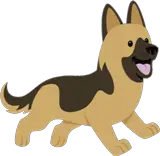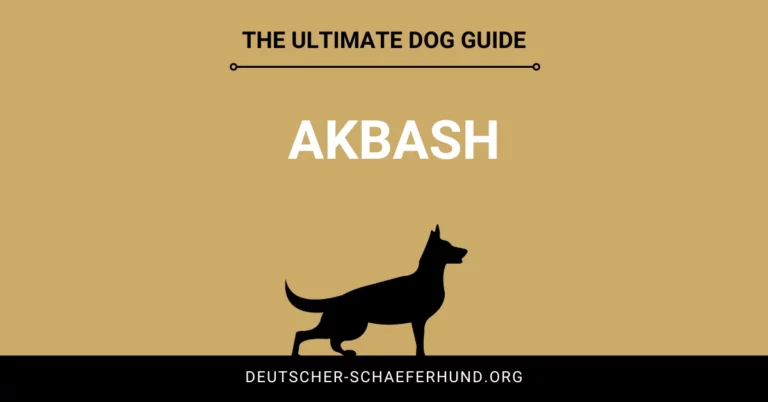Introduction
The Akbash is a majestic and powerful dog breed known for its intelligence, loyalty, and protective instincts. Hailing from Turkey, this breed has a rich history as a livestock guardian, making it an excellent working dog. In this guide, we’ll delve into the fascinating world of the Akbash, exploring their physical characteristics, temperament, care requirements, and more.
| Characteristic | Information |
|---|---|
| Origin | Turkey |
| Size | Large |
| Height (Males) | 28-34 inches |
| Height (Females) | 27-32 inches |
| Weight (Males) | 90-130 pounds |
| Weight (Females) | 75-105 pounds |
| Coat | Double coat, predominantly white |
| Lifespan | 10-12 years |
| Temperament | Calm, protective, loyal, and intelligent |
| Exercise Needs | Moderate |
| Grooming Needs | Moderate |
| Trainability | High, with a strong independent streak |
| Compatibility with Other Pets | Good, with proper socialization |
| Suitable Living Environments | Best with a large, securely fenced yard |
Akbash Physical Characteristics
Size and Weight of the Akbash
The Akbash is a large and muscular dog, with males standing between 28 to 34 inches tall and females between 27 to 32 inches. Males typically weigh between 90 to 130 pounds, while females range from 75 to 105 pounds. Their size and strength make them well-suited for their traditional role as livestock guardians.
Akbash Coat and Color
Akbash dogs have a beautiful double coat, with a dense undercoat and a coarse outer coat. Their fur is predominantly white, which helps them blend in with the flock they protect. The coat can be short to medium in length and may have slight feathering around the neck, legs, and tail.
Head and Facial Features of the Akbash
The Akbash has a distinct head and facial appearance, with a broad skull, strong muzzle, and slightly rounded forehead. Their eyes are almond-shaped and can range from light golden brown to dark brown. Their ears are V-shaped, medium-sized, and set high on the head, often folding down to frame their face.
Akbash Lifespan
With proper care, the average lifespan of an Akbash is 10 to 12 years. This is typical for a large dog breed, and factors such as genetics, diet, and exercise can all contribute to their overall health and longevity.
Temperament and Personality of the Akbash
General Temperament
The Akbash is known for its calm and steady temperament. These dogs are naturally protective and reserved, but they also have a gentle and affectionate side. They are devoted to their family and can form strong bonds with their owners.
Intelligence and Trainability of the Akbash
Akbash dogs are highly intelligent and can be trained for various tasks. However, they are independent thinkers and may not always follow commands blindly. Consistent, patient training and positive reinforcement techniques are crucial to help them understand and follow instructions.
Loyalty and Protectiveness
One of the standout qualities of the Akbash is their unwavering loyalty and protectiveness towards their family and flock. They have a strong guarding instinct, which makes them excellent watchdogs. However, it’s important to socialize and train them properly to ensure they can distinguish between potential threats and harmless visitors.
Socialization and Interaction with Other Animals
Early socialization is essential for the Akbash to ensure they are comfortable around new people, animals, and environments. Although they may be reserved with strangers, they can get along well with other animals, particularly if they are raised together from a young age.
Akbash Care and Maintenance
Exercise Requirements
Akbash dogs require regular exercise to maintain their physical health and mental well-being. They enjoy activities such as long walks, hikes, and playtime in a securely fenced yard. However, as a large breed, it’s essential to monitor their exercise levels to avoid overexertion, particularly during their growth period.
Grooming Needs of the Akbash
Akbash dogs have moderate grooming requirements. Their double coat should be brushed weekly to remove loose hair and prevent matting. During shedding season, more frequent brushing may be necessary. Additionally, it’s important to trim their nails regularly, clean their ears, and brush their teeth to maintain overall health and hygiene.
Feeding and Nutrition
Akbash dogs require a balanced and nutritious diet to support their large size and energy levels. High-quality dog food, formulated for large breeds, should be provided in appropriate amounts based on their age, weight, and activity level. Consult your veterinarian for guidance on the best feeding schedule and dietary needs for your Akbash.
Health Concerns and Preventive Care
Like all breeds, the Akbash is susceptible to certain health issues, such as hip dysplasia, bloat, and hypothyroidism. Regular veterinary check-ups, vaccinations, and preventive care can help to maintain your dog’s health and detect potential issues early. Maintaining a healthy weight and providing proper exercise can also contribute to their overall well-being.
Training and Socialization for the Akbash
Importance of Early Socialization
Early socialization is crucial for Akbash to develop into well-adjusted and confident adults. Exposing your puppy to various people, animals, and environments from a young age will help them adapt to new situations and reduce the likelihood of fear or aggression.
Obedience and Specialized Training
Training your Akbash should start early and focus on obedience and basic commands. As a breed with strong guarding instincts, they may benefit from specialized training to refine these skills and learn to respond appropriately to different situations. Consistency, patience, and positive reinforcement are key to successful training.
Tips for Effective Training
Establish clear and consistent boundaries from the beginning.
Use positive reinforcement techniques, such as praise, treats, and play, to encourage desired behaviors.
Be patient and persistent, understanding that the Akbash may have a strong independent streak.
Enroll in a puppy training class or seek the guidance of a professional trainer if needed.
Addressing Potential Behavioral Issues
Akbash dogs may exhibit certain behavioral issues, such as excessive barking, digging, or destructiveness if their physical and mental needs are not met. Proper exercise, mental stimulation, and consistent training can help to prevent and address these concerns.
Suitable Living Environments for the Akbash
Ideal Home Settings
The Akbash is best suited for a home with a large, securely fenced yard where they can safely roam and exercise. They may not be the best choice for apartment living due to their size and activity levels. Families with experience in raising large breeds and a commitment to proper training and socialization will find the Akbash a rewarding companion.
Compatibility with Other Pets
Akbash dogs can coexist peacefully with other pets, particularly if they are raised together from a young age. However, their strong protective instincts may lead to territorial behavior, so careful introductions and supervision are essential when bringing a new pet into the home.
Space Requirements
As a large breed, the Akbash requires ample space to move around comfortably. Ideally, they should have access to a securely fenced outdoor area where they can exercise and explore. Inside the home, they should have enough room to stretch out and rest without feeling cramped.
Weather and Climate Considerations
Akbash dogs can tolerate a range of weather conditions, thanks to their double coat. However, they may be more comfortable in cooler climates, as their thick fur provides insulation against cold temperatures. In hot weather, it’s essential to provide your Akbash with plenty of shade, freshwater, and opportunities to cool down to prevent overheating.
Working Abilities of the Akbash
Livestock Guardian Skills
The Akbash has a long history as livestock guardian, using their strength, intelligence, and natural protective instincts to keep their flock safe from predators. With proper training, they can excel in this role, even in modern-day farming and ranching settings.
Adaptability to Various Roles
Although the Akbash is primarily known as livestock guardian, they can also adapt to other working roles, such as search and rescue, therapy work, and even dog sports like agility. Their versatility and intelligence make them a valuable asset in many different situations.
Success Stories and Testimonials
Many Akbash owners and breed enthusiasts can attest to their incredible abilities as working dogs and devoted companions. From saving livestock from predators to providing comfort and support as therapy dogs, the Akbash has proven itself to be a reliable and adaptable breed.
How to Choose an Akbash Puppy
Selecting a Reputable Breeder
When looking for an Akbash puppy, it’s essential to find a reputable breeder who prioritizes the health and well-being of their dogs. Research potential breeders, ask for references, and visit their facilities to ensure they follow ethical breeding practices and raise their puppies in a clean, nurturing environment.
Recognizing Signs of a Healthy Puppy
A healthy Akbash puppy should be alert, active, and curious. Look for clear eyes, clean ears, and a shiny coat free of any skin irritations. The puppy should be well-socialized and comfortable around people and other animals.
Preparing for Your New Akbash
Before bringing your new Akbash puppy home, ensure you have all the necessary supplies, such as a crate, bed, food, water bowls, grooming tools, and toys. Set up a safe and comfortable space for your puppy and be prepared to invest time and effort into training and socialization to help them grow into a well-adjusted adult.
Akbash Rescue and Adoption
Benefits of Rescue and Adoption
Rescuing or adopting an Akbash can be a rewarding experience, as you provide a loving home for a dog in need. Many rescue organizations work tirelessly to rehabilitate and rehome dogs, and they can offer valuable support and resources for adoptive families.
Finding Akbash Rescue Organizations
To find an Akbash rescue organization, start by searching online or contacting local animal shelters and breed-specific rescues. These organizations can help match you with an Akbash in need of a loving home and provide guidance on the adoption process.
Preparing for an Adopted Akbash
When adopting an Akbash, it’s crucial to be prepared for the unique challenges that may come with a rescue dog. They may require additional patience, training, and socialization to adjust to their new home. Providing a stable, loving environment and working closely with the rescue organization can help ensure a successful transition.
Conclusion
The Akbash is a remarkable breed, offering a unique combination of strength, intelligence, and loyalty. With proper care, training, and socialization, they can be a devoted and protective companion in a variety of settings. Understanding the responsibilities of Akbash ownership and committing to their well-being will ensure a rewarding and fulfilling relationship with this incredible breed.
Whether you’re considering an Akbash for its working abilities or as a loving family companion, it’s essential to be prepared for the commitment and responsibility that comes with owning such a large and intelligent dog. By investing time and effort into their care, training, and socialization, you’ll be rewarded with a loyal and protective friend for years to come.
Embracing the unique qualities of the Akbash and nurturing their natural instincts can help them reach their full potential. As livestock guardian, companion, or even in other working roles, the Akbash is sure to impress with their devotion and versatility. So, if you’re ready to welcome an Akbash into your life, take the time to learn all you can about this exceptional breed and prepare for a journey filled with love, loyalty, and adventure.



